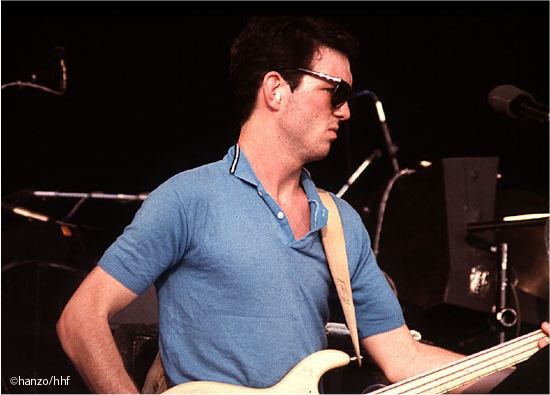 scott thunes
scott thunes scott thunes
scott thunes
Scott Carter Thunes, aka "Nektor", aka "Throkton", was raised in San Anselmo, CA, and took up the bass at age ten, when "his mother and guitar playing older brother decided the family needed a bassist". In 1981, Thunes contacted Frank Zappa at the behest of his brother, who had himself tried unsuccessfully to audition for Zappa's group.
Scott Thunes recorded and toured with Frank Zappa until the last concert of the Zappa band, June 1988.
The picture on the right was taken at the Zappa 1982/06/05 Schüttorf concert in Germany by Hanzo53.
Scott toured with Dweezil and Ahmet Zappa, and toured with Steve Vai.
He performed with The Lewinskys at the 13th Zappanale Festival in
Bad Doberan, Germany.
Happily married, living in Marin after a hiatus of several years in LA, and working for a software firm, Scott has no imminent plans to return to professional music. Thunes: "The music business treated me fairly poorly, and after Frank died, it's just been one unappreciating employer after another, so they can all go hang".
March 7, 2009, Scott turned up / took the stage at the Zappa Plays Zappa concert in Santa Rosa and played the bass during 'Willie The Pimp'.
Saturday, November 6, and Sunday, November 7, 2010, Scott Thunes took part in a Q&A session at the "Frank Zappa At The Roundhouse" celebration of Frank Zappa’s music in London, UK. Later the same night, the Dweezil Zappa Played Zappa band performed at the same festival with special guests Ian Underwood, Jeff Simmons & Scott Thunes.
The January 2011 issue of Bass Guitar Magazine included an interview with Scott Thunes.
August 2012, The Mother Hips, featuring Scott Thunes, performed at the Zappanale festival in Bad Doberan, Germany.
discography
| 35 | frank
zappa: ship arriving too late
too save a drowning witch
(1982, lp, usa, barking pumpkin) |
|
| 36 | frank
zappa: the man from utopia
(1983, lp, usa, barking pumpkin) |
|
|
40 |
frank zappa: them or us (1984, 2lp, usa, barking pumpkin) |
|
|
41 |
frank zappa: thing-fish (1984, 3lp, usa, barking pumpkin) |
|
|
44 |
frank zappa: frank zappa meets the
mothers of prevention (1985, lp, usa, barking pumpkin) – american version (1985, lp, eur, emi) – european version |
|
|
45 |
frank zappa: does humour belong in
music? (1986, cd, ger, emi) |
|
|
47 |
frank zappa: jazz from hell (1986, lp, usa, barking pumpkin) |
|
| dweezil zappa: havin' a bad day (1) (1986, lp, usa, barking pumpkin records st 74204) - feat. thunes, wackerman, moon & ahmet, produced by fz |
||
| frank zappa: the guitar world according to frank zappa (1987, mc, usa, ??) |
||
| the
mothers of invention: uncle meat
(7) (-) - the 1987 reissue |
||
| western
vacation: western vacation (1987, lp, usa, akashik records) - feat.steve vai, tommy mars, bob & suzannah 'thana' harris, scott thunes |
||
| dweezil zappa: my guitar wants to kill your mama (2) (1988, lp, aus, chrysalis 1 38922) - feat.scott thunes, terry bozzio, moon zappa, ahmet zappa, incl. 'my guitar wants to kill your mama' (frank zappa) |
||
|
50 |
frank zappa: guitar (1988, 2cd, usa, ryko) |
|
| 51 | frank zappa: you can't do that on
stage anymore vol.1 (1988, 2cd, usa, ryko) |
|
|
53 |
frank zappa: broadway the hard way (1988, 2lp, usa, barking pumpkin) |
|
| 54 | frank zappa: you can't do that on
stage anymore vol.3 (1989, 2cd, usa, ryko) |
 |
| 1989
Gumby- Gumby |
||
| 1990 Prieboy, Andy- Upon My Wicked Son | ||
| 1991 Vandals- Fear of a Punk Planet | ||
| 55 | frank
zappa: the best band you never
heard in your life
(1991, 2cd, usa, barking pumpkin) |
|
| 56 | frank zappa: make a jazz noise here (1991, 2cd, usa, barking pumpkin) |
|
|
57 |
frank zappa: you can't do that on
stage anymore vol.4 (1991, 2cd, usa, ryko) |
 |
| dweezil zappa: confessions (3) (1991, cd, fr, food for thought cdgrub-19) - feat.mike keneally, scott thunes, ahmet zappa, al malkin |
||
| frank zappa: as an am (1991, cd, usa, rhino foo-eee records r2 70537) |
||
|
58 |
frank zappa: you can't do that on
stage anymore vol.5 (1992, 2cd, usa, ryko) |
 |
|
|
mike keneally:
hat (1) (1992, cd, usa, immune records) - feat.scott thunes |
|
| 59 | frank zappa: you can't do that on
stage anymore vol.6 (1992, 2cd, usa, ryko) |
 |
| 1993 Waterboys- Dream Harder (Bass, Drums) | ||
| 1 | z: shampoo horn (1993, cd, uk, food for thought cdgrub 25) / european edition,= ahmet & dweezil zappa, feat. scott thunes, mike keneally, terry bozzio, morgan ĺgren |
 |
| various artists: zappa's universe (1993, cd, nl, verve 513575-2) - incl. various zappa band alumni performing frank zappa's compositions |
||
| various artists: choice morsels (1993, cd, usa, verve/polygram) - incl. various zappa band alumni performing frank zappa's compositions |
||
| z: shampoo horn (1994, cd, usa, barking pumpkin r2 71760) / american edition, = ahmet & dweezil zappa, feat. mike keneally, joe travers, bryan beller, scott thunes, terry bozzio, morgan ĺgren |
 |
|
| 1995
Fear- Have Another Beer With Fear |
||
| 1996 Kramer, Wayne- Dangerous Madness | ||
|
western vacation: songs from the album vibraudoblast (1996, cd, ger, muffin records productions cdmrp 033) - feat.scott thunes |
||
|
67 |
frank zappa: have i offended someone? (1997, cd, usa, ryko) |
|
| western
vacation: vibraudoblast (1997, cd, ger, muffin records productions cdmrp 032) - feat.scott thunes |
 |
|
| 1999
Anthony Hindson and Friends- It's A Curious Life (with Jack Bruce and
Shankar) |
||
| dweezil
zappa: automatic (6) (2000, cd, usa, favored nations entertainment) - feat.morgan ĺgren, terry bozzio, mike keneally, scott thunes, ahmet zappa |
||
| various
artists: eyeinhand sampler volume
1 (2001, cd, spain, vaso music vm 032) - all zappa related artists |
||
| various artists:
zappanale 13 (2003, 3cd, ger, arf society) – incl. various artists playing frank zappa compositions |
||
| various
artists: zappanale 13 -
the lewinskys - grandmothers west (2003, dvd, ger, the arf society) - feat. various artists playing frank zappa compositions |
||
| various artists:
zappanale # 13 (2003, cd, ger, arf society) – incl. various artists playing frank zappa compositions |
||
| geoff wolf: in
rememberance (????) – feat.scott thunes |
||
|
79 |
frank zappa: trance-fusion (2006, cd, usa, zappa records) |
|
| various artists: the
frank zappa aaafnraa birthday bundle (2006, itunes, -) - feat. frank, moon, dweezil, ahmet & diva zappa |
||
|
mike keneally:
hat (2007, cd+dvd, usa, exowax) - reissue with bonus disc ; feat.scott thunes |
 |
|
|
81 |
frank zappa: the dub room special (2007, cd, usa, zappa records) |
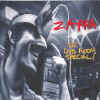 |
|
83 |
frank zappa: one shot deal (2008, cd, usa, zappa records) |
|
| various artists: the
frank zappa aaafnraaa birthday bundle 21 dec 2008 (2008, itunes, -) - feat. frank, dweezil, ahmet & diva zappa |
||
| various artists: the
frank zappa aaafnraaaa birthday bundle 21 dec 2010 (2010, itunes, -) - feat. frank, dweezil, ahmet zappa |
||
| the san francisco
free jazz collective: november (2011, cdr / itunes, -) - feat. scott thunes |
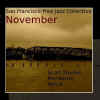 |
|
| j21:
beyond the holographic veil (2011, cd, uk, floating world records freem5033) - feat. scott thunes, ed mann, robert martin, don preston, andrew greenaway & marco minnemann |
 |
|
| dweezil zappa:
f.o.h. III - out of obscurity (2012, cd, usa, fantom records) - all compositions by frank zappa / = zappa plays zappa, feat. scott thunes |
||
| various artists:
the frank zappa aaafnraa 2014 birthday bundle (2014, download, --, barfko-swill) |
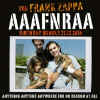
|
|
|
101 |
los
angeles philharmonic:
frank zappa -
200 motels the suites (2015, 2cd, usa, zappa records zr0019) |
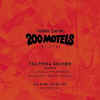
|
|
105 |
frank zappa: frank zappa for president (2016, cd, usa, zappa records zr 20021) |
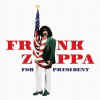
|
semi-official releases
| frank
zappa: puttin' on the ritz (2014, 2cd, ??, goldfish records golf009) |
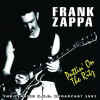
|
|
| frank zappa:
puttin on the ritz (2014, 4lp, uk, moonunit records) = 1981/11/17 concert // vinyl reissue of the 2 cd set |
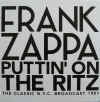
|
|
| frank zappa: teenage rockin' combo - dumb all over
live 1981 (2015, 2cd, uk, broadcasting radio records brr5011) = 1981/11/17 new york city concert |

|
|
| frank zappa:
puttin on the ritz - volume 1 (2015, 2lp, uk, let them eat vinyl letv206lp) = 1981/11/17 concert // vinyl reissue of the 2 cd set |
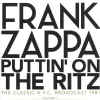
|
|
| frank
zappa:
puttin on the ritz - volume 2 (2015, 2lp, uk, let them eat vinyl letv206lp) = 1981/11/17 concert // vinyl reissue of the 2 cd set |
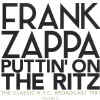
|
|
| frank zappa: teenage rockin' combo - dumb all over
live 1981 (2015, 3lp, uk, broadcasting radio records brr4011) = 1981/11/17 new york city concert // vinyl reissue of the 2 cd set |

|
|
magazines
|
|
concerts
* * * as part of the "rock group" in "zappa's universe" * * *
* * * as part of the lewinskys * * *
AKA:
"Nektor", "Throkton"
Birthday:
January 20th
random notes
From: Pat Buzby (pbuzby@surfnetcorp.com)
There
was an early '81 show (10/7/81, I think) where FZ intro'd him
as "Throkton" or something like that.
Don't know what it meant but
FZ seemed to think it was funny. When
Scott appeared on the group I
e-mailed him a few questions, one of them being what "Nektor" meant.
He answered my other questions but not that one.
Has been seen playing with the Waterboys on British TV.
Also recently, I saw Steve Vai on MTV introducing his new band. He had Scott on bass. Scott also played in "Z".
Just
wanted you all to know that Scott Thunes just came through town (Boston, MA) as
the bass player in the 1995 incarnation of FEAR, Lee Ving's
LA-based punk band.
He's on the new record "have another beer with fear"
"FEAR?" Is this the "repackaged for the teeny-punk revival" version of Lee Ving's Army, his post-Fear band w/ no other members of fear?
It
is indeed. Band comprises: Lee Ving
(guitar, vocals), Sean Cruse (guitar),
Scott Thunes (bass) and Andrew Jaimez (drums).
Tom Parker(editor@incast.com) sez:
Scott
Thunes is indeed touring and recording with the latest version of Fear w/ Lee
Ving, singer, guitarist, actor ("Streets of Fire") and Vietnam vet.
(so I've heard).
Fear was well documented in "the Decline of Western Civilization"
(1980) along with the Circle Jerks and Black Flag. They were a
recording outfit as early as 1978 (first single was "I love Living in the
City") and released their first album in early 1982 (recorded in Dec. 1981)
"The Record." Lee Ving - Vocals, guitar.
Derf Scratch - Bass. Philo Cramer - Guitar. Spit Stix - Drums. Their second
album "More Beer" was released in
1985. Anything since then has been ill-received at best, although the new
line-up looks promising.
mjk@zakus.ita.pwr.wroc.pl (Maurice J. Kin) said:
I've
read in Bass Player magazine that Scott is working as a door man somewhere in
L.A. because he didn't find anymore occasion to express himself in the current
music or band. He isn't interested to play some arranged notes unless he can
express himself.
From: Scott Thunes (geoscott.com)
Hi.
Don't mind what you put on the "whatever happened to..." site, just
as long as it doesn't say that I was unemployed at all. Had the doorman
job at the Paradise for 10 months (no typo. Saw somewhere that it
was 2 months, and that's a fucking joke) and got my new job at the end
of that. Dovetailed for two weeks, and gave notice. On my last night
there had a perfect Thunes moment and got in a yell with one of the
club hierarchy. Walked right out. Went directly into 32k/yr.
From: Michael Martak (mmartak@imedia.com)
Date: Tue, 18
Nov 97 18:13:01 +0000
This
is for your "Whatever Happened To..." FAQ. I have recently come into
contact with Mr. Thunes through email (no I will not give out his address).
A friend of mine gave me a suitcase formerly owned by him (it's
in terrible shape...I am currently using it to store my Zappa memorabilia).
Scott
says:
You are indeed the proud owner of an extensively beat-up, totally overused,
internationally-travelled piece of incredibly inexpensive (to
you, and the purchaser of the gift from Josh) rock memorabilia. If it had a
handle, it'd still be mine, but only for the transportation
of laundry from home to '-mat'. The
main reason for the destruction of the suitcase was the transportation
of large books and records, tapes, and CD's over the course
of 4 world-tours, and numerous national ones. I
have given up the bass, and only play the piano as a hobby. My article
in the March issue of Bass Player magazine will probably give you
a pretty good idea of what's going on with me now. Happily
married, living in beautiful Marin after a hiatus of 6 1/2 years
in LA, and working for a software firm. The
music business treated me fairly poorly, and after Frank died, it's
just been one unappreciating employer after another, so they can all
go hang. Enjoy
the suitcase, just don't use it for anything important. It will pop
open like a fig.
Later.
S
I hope he doesn't mind my sending this to you. This is purely in the interest in keeping your FAQ up to date.
Sincerely,
Michael
Martak
From: "geoscott.com" (scott@geoscott.com)
Newsgroups:
alt.fan.frank-zappa
Subject: A long
introduction to the group. Sorry about that...
Hi,
kids.
This is Scott Thunes. Honestly.
And it looks like I have to finally get involved: You
guys wondering about my sexuality was one thing, but you have to draw
the line somewhere, and I draw it at arguments about tone.
How do you
discuss tone? You
ask what the gear was. Who
knows what the gear was? Hardly
anybody anymore. I
was THERE, and I don't remember.
So, no, it wasn't a Trace-Elliott back then, as I wasn't an endorser at that point. That was Chads setup for his midi-stuff. He'd owned that for quite a while, as I recall.
I, on the other hand, was lucky enough to use an onld BWG (I think) head that he'd had lying around for years, along with a 2x15 cabinet left over from his PA.
I
didn't use a Trace-Elliott until I had met my first wife, who introduced
me to the president of the company. You think I could have gotten
an amp from them if I was just the bassist for Frank Zappa?
Fagedaboudit.
Yes, I used a flanger on stage. I was this cheezy little thing I got from Pia Vai, right after she was fired from Vixen (before they got big, but after a couple of years of touring military bases).
The house engineer (Harry Andronis) on the '88 tour had the most amazing hard-on for my bass tone. That's the only thing that really made the difference for me. He completely rules the airwaves.
Frank had lost most of his high-end hearing way back in the old days, and that's what you're hearing on my earlier tracks, combined with the tone of four different brand strings on an '81 Carvin with active electronics (Valley Girl is a perfect example). Everything pre '84 was the Carvin. Post '84 is the '63 P-bass. The only exception was Cocaine Decisions, which was my '65 Jazz Bass. The only time I played that, except for broken strings in '84.
I've never seen the Zappa's Universe tape, so I can't recall how horribly they screwed that up, but from what Mike K. says about that crap (I don't recall ever having anything to do with anything or anybody concerned with that business after the concert...)
Hope that clears that up.
So.
Here I am in the land of alt.fan.frank.zappa.
I didn't think I'd make it for a while, but this last bit about my tone
pushed me over the edge into coming in and saying hi.
Hi.
I'd like to thank Lewis Saul for attempting to protect me for so long. I probably should have come in sooner, but as you'll see from my website (not finished yet, but I gotta let you in sometime...), I wasn't interested in becoming part of your discussions. Wanted you let you guys do your thing. That's what this thing is for, right? If we wanted to, us old members could put together our own damn newsgroup and talk amongst ourselves, right?
But I also realize that you're inventing future history right now, and some of that shit is about me. Seems a little guidance is in order. Hope you don't mind.
Anyway, my site has been up for a while, but it didn't seem that I would ever be ready to get all the info that you'd need up, unless I didn't read the newsgroups again.
So let me apologize if I'm butting in. I'll get out if anybody tells me to. No problem. Wouldn't want to inhibit your natural exuberances, correct? Not really interested in solving every problem on earth.
Let me, for the record, state here and now that I'm incredibly busy with my life the way it is, and I'm not bored enough to sit around all day and submit answers to all your questions. Just wanted to put that out there if there happened to be anybody desperate enough to hassle me about every last niggling (frivolous, petty, niggling; piddling, peddling; fribble, inane, ridiculous, farcical; finical, finikin; fiddle-faddle, fingle-fangle, namby-pamby, wishy-washy, milk and water.) item on their agenda.
I also don't want to have to come up here and check you out every day, just to find out what you said about me this week, so I'd like to at least let you know that i'd like you guys to go to my site, check out what's there, and give me input on what you want to see up there.
In other words, if you want some info from me, let's try and make it universal, so that others can benefit from it. I'll put it up on the site, and that will help the future from becoming wrong and stale.
I'm in the middle of letting this guy in Indiana (who's writing a book) get a bunch of stuff from me, information-wise, so there might be some things I'd like to stay away from for now. You'll know what they are on the site.
For the record, I'd like to thank all of you who appreciate what I've done, played, said, and created. You have changed my life for the better. Didn't even know it needed improving...
Too
bad that doesn't include playing music. That seems to have shrunk to
about an hour of piano a day. Doesn't bother me, though. Too busy living.
Know what I mean?
Thanks
for reading.
Scott
Here's
the site:
http://www.geoscott.com
I
did it myself, so no getting mad at the webmaster, thank you very much.
From: Ron Spiegelhalter (ron@mk.bfd.rules)
I
found this on www.kissasylum.com this morning...
In Cold Sweat: Interviews with Really Scary Musicians will be published by Limelight
Editions in March or April. It's a collection of uncut, fully annotated
interviews with four scary musicians: Gene Simmons; Peter Hook of New
Order; Jerry Casale of Devo; and Scott Thunes of Frank Zappa fame. Each interview
has a detailed intro and exit, and the book will include about seventy
black-and-white photos--most previously unpublished--and complete discographies.
It'll be available in book stores and on amazon.com.
From: Mike Hawk
2004/01/13
Did you know Terry Bozzio and Scott Thunes went to the
same high school and had the same band teacher?
Sir Francis Drake in San Anselmo, CA
I went to the same school and Scott is a good friend of
mine. I was looking at your site and thought that might be an interesting
connection to make.
I remember seeing Bozzio's name on the wall in the band room as recipient of a
music scholarship in 1969, I believe. I don't think Scott actually took school
band for very long - he was far ahead of the crowd.
-- Mike Hawk
Scott
Thunes: Requiem for A Heavyweight
Bass Player Magazine: March 1997
by Thomas Wictor
If you've never heard Scott Thunes play the bass, you can't appreciate
how far the instrument can be taken. Thunes will dispute that notion, of
course-he takes issue with the idea he's a great bassist. The former Frank Zappa
sideman (whose surname is pronounced TOOness) is a contrarian of the highest
order. He disagrees with almost any statement of a declarative nature, at least
when it concerns his role in music and his approach to the bass. He' s of the
opinion that much of the brilliant live work he recorded with Zappa is riddled
with mistakes, each of which he's apt to point out in exacting detail.
Raised in San Anselmo, California, Thunes took up the bass at age ten,
when his mother and guitarplaying older brother decided the family needed a
bassist. His burgeoning skills earned him an early admission to the College of
Marin at age I5, where he studied jazz and discovered the works of classical
composer Béla Bartók. Simultaneously, he was exposed to the new wave band
Devo-a revelation that eventually knocked him free of his jazz-based moorings.
Following a failed bid to enter the San Francisco Conservatory of Music as a
conducting major, he parked cars and played in local rock and new wave bands,
despite having decided that classical music was "the supreme expression of
musical art."
In 1981, Thunes contacted Frank Zappa at the behest of his brother, who
had himself tried unsuccessfully to audition for Zappa's group. Scott recorded
some tracks in Los Angeles and was summoned back for the formal audition a week
later. This session included improvising to arrhythmic tracks played on a drum
machine, as well as performing the same song with two other auditioning
bassists, the three of them competing face-to-face.
Once hired, Thunes toured and recorded with Zappa until 1988. During this
period, he also recorded several albums with Frank's son Dweezil, forming a
touring band with him in '89. In '93, Thunes left Dweezil's group, toured
briefly with guitarist Steve Vai, and recorded and toured with the punk band
Fear. In between construction jobs, temp work, and various local gigs in Los
Angeles and the Bay Area, he also recorded with the Waterboys, Andy Prieboy,
Wayne Kramer, Mike Keneally, and the Vandals, among others.
At the time of this interview, Scott Thunes was working as a doorman at
the Paradise Lounge in San Francisco. You see, his resume doesn't mention that
his musical career could
be seen as one endless melee, or that he's been fired from as many bands as he's
quit. And Scott admits most of the people he has worked with will never call him
again.
Even so, from an artistic standpoint, Thunes would be quite a catch for
any group. Few bassists have played with his sheer scope and energy. If you
compare two of Frank Zappa's
better live records, Does Humor Belong in Music? and Make a Jazz Noise Here, for
example, it' s hard to believe the same person is playing the bass. Scott's
greatest gift
is probably his ability to combine music theory with a natural exuberance on the
instrument, resulting in a melodic, improvisational, emotional, and absolutely
free voice that's unique
and impossible to duplicate-despite his claims to the contrary.
Thunes reluctantly agreed to talk at his Marin County home, suggesting I
come hang with him for an afternoon before the formal interview. Some of his
former colleagues had warned
me to beware of his abrasiveness, regaling me with mindboggling stories of his
antics on and off the stage. Although opinions about Scott varied, one universal
observation
stood out: Thunes has an atavistic loathing of stupidity and smallmindedness, an
attitude that could hardly have served him well in Los Angeles. At his house, we
spent the
first afternoon drinking coffee and chatting about films, music, art, and
travel. We read aloud to each other from our favorite writers, went for a couple
of walks, and listened
to some CDs. The actual interview took place two days later. It was, sadly,
without incident-although it was oddly thrilling to be called
"Pookie," a name he gave me after
we had been together a scant I5 minutes. As for the larger question, whether or
not he's really through with the business...well, Frank Zappa himself also
stopped touring in 1982.
And in '84. And in '88.
BP:
You've said you have a problem being called a bass player. Can you explain?
ST:
Sure. When I learned how to play the bass, it was by default; I didn't really
choose it for myself. When my mom brought one home, I was too young to
appreciate any musicality about it-so I stopped playing within six months. I
started up again because I saw my brother and his friends having so much fun,
and playing the bass became a way to get into music-a way for my musicality to
be expressed. Within a short time, I exhibited talent for the instrument. In
college, I was in the jazz band, orchestra, and wind band; I was learning tons
of stuff. But I never thought of myself as a bass player; I was a musician. The
actual role of the bassist does not interest me, and I don't know how it could
interest anybody else. It's the ultimate non-glory position. Singers, guitar
players, drummers, bass players-that's how it goes, in order of importance.
Though the function of the bass is very important in a rock band, I've never
ever been able to perform that function without irony.
BP:
But lots of people listen to your work and say to themselves, "Compared to
him, I'm not a bass player."
ST:
Well, I hate to call them fools, but they don't know anything about music. What
does it matter if you're a bass player? Pick another instrument you can express
yourself on. I express myself on the bass because I've been playing it for 25
years. Visualizing its fingerboard is simple for me. It's simpler than the
guitar, which has that third between the G and B strings that throws me off. The
joy of playing the bass is having my voice come out on an instrument; I don't
understand how that makes me a bass player. I also can't understand how that
makes me a chosen role model, because it's the voice that's important, not the
instrument. Everyone's trying to make the bass the voice. Stu Hamm playing the
"Moonlight Sonata?" It's an ugly sound-don't do it! Step away from the
bass! If you think the sound of the bass is more important than your own
personal voice, you've missed the point of music completely.
BP:
Couldn't what you do on the bass be considered as having the same impact as Stu
Hamm playing the "Moonlight Sonata" without the flashiness?
ST:
That's got to be impossible, because I was not the first person to do what I do.
I got it from somebody else. How come people don't listen to that person as
well?
BP:
So who is that person?
ST:
John Paul Jones. He was my role model in the meshing of riffing with a personal
melodic voice. When he was given a chance, he played melodies. And I know he's
not the best bass player in the world, but neither am I. He wasn't supposed to
be a great bassist. Most guitar players don't want a great bass player to play
against, because they don't want the complicated dynamic interplay; they prefer
more of an orchestrated interplay. That's what I performed: an orchestrated
interplay with the other instruments. Most of the time guitar parts are fairly
rigid, giving me tons of room to be fluid. And it's unfair I should be given
even slight credit for something I don't feel pushed the boundaries of the
instrument.
BP:
Do you repudiate the idea that your playing is of any value, that young bassists
might look to you as a role model?
ST:
No. Yes. [Laughs.] I do not repudiate the idea that my playing has any
value-just that I'm a role model. I can't be a bass player, I don't want to be a
bass player, I have no interest in being a bass player; I don't want to fulfill
that role. I want to be Scott Thunes, who has a voice. The music has always been
my role model. And if there isn't anything juicy in it, I don't have anything to
play against.
That's
what John Paul Jones did: his voice was heard in conjunction with all the other
voices. And that shouldn't have worked, because Jimmy Page, who's one of my
favorite guitar players in the universe, is not a very good guitarist. But he's
got great ideas, and he attempts to perform them.
BP:
Even if you're not a role model, there are people who would kill to play on the
records you've played on.
ST:
Then kill! Go ahead and kill! [Laughs.]
BP:
There are also a lot of people who think you're an idiot for throwing it all
away.
ST:
I didn't throw anything away! They threw me away. I didn't leave Los Angeles
until I couldn't get a gig for two years. I did stay after I wasn't needed
anymore, though, but I was with a girlfriend, I was in love, and I was having a
good time. But you don't kill for a musical gig- it's not worth it! If you're
going to school to learn how to be a musician, you're not learning how to be a
rock star, and you're not learning how to be famous. You're learning to play
music- that's it! It doesn't mean you get a band, it doesn't mean you hook up
with friends ... it doesn't mean dick! You spent $5,000 on school? Great! That
means you spent $5,000 on school. Now, get a job. And I don't mean in the
musical world-I mean get a job.
BP:
You referred to yourself a couple days ago as a "musical has-been."
Since you're a doorman at a club now and you're looking for work in the computer
fleld, can you see how some people might see that as a tragic waste?
ST:
No, because it's their fault. It's the audiences fault for being party to rock
bullshit-for accepting the false truths that leaders of rockbands present to the
world so people will think they're cool. If they only knew what these people are
really like ... nobody deserves anything, especially not these people. I mean, I
don't deserve what I got from Frank. I truly understand for myself that it was
an absolute fluke of timing and nature that Frank wanted what I had to offer at
that point in time. I'm a good bass player, fine. I'm a great bass player,
great. Think whatever you want. But I'm Scott Thunes first and foremost, and
that's where most of my problems come from. I deserve the happiness I can get
from my chosen life, but not musical glory. I do not deserve musical glory. No
musicians do, unless they are golden. And I don't know anybody who's golden.
BP:
What about if you have ability and an original approach? Don't you deserve to be
heard just based on your skill?
ST:
Where? Where are you going to find a group of people I could work with and
express myself within the confines of happiness? All of these CDs you've
listened to were born from almost total emotional degradation, and I'd rather
not touch the bass again until I can be happy doing it. I would much rather make
$8 an hour work- ing at a club than go out on the road playing Make a Jazz Noise
Here-type music and being, away from my wife. Anyway, music doesn't pay. If I
can make more money working at a computer company that's doing interesting
stuff, and if I can be happy at home every night, and if I've already played
with Frank Zappa, where else is there to go?
BP:
If you won the lottery today and never had to work again, would you still be
interested in music?
ST:
Oh, absolutely-but not the bass. I'd orchestrate. I would write pieces for other
people to play, and I would sit back and watch. And there would be no bass
player in my music. If I had my druthers, I would never, ever write for a rock
band. I have no interest in writing songs.
Being
in a band isn't worth it. Most bands don't deserve to be together; they don't
have enough songs to present to the world, and they don't deserve to have their
music presented to the world. You are a lucky motherfucker to be able to stand
onstage for even five seconds and have people stare at you. Ninety-eight percent
of the bands out there do not deserve it for a sec- ond, let alone for an entire
career.
BP:
Wouldn't it be a shame if people didn't get a chance to hear what you have to
offer?
ST:
They have a chance. Those aIbums are out, and you can buy them. What else do
they need to know? How many more recordings of my performances do they need to
hear before they get it?
BP:
As many as possible?
ST:
No. If people hear more albums, will they learn more? Would they even understand
it? Because all it is, really, is music theory. What I learned in music school
was that in modern music, you can play any note against any chord and make it
mean something. If you don't know how you're using it, or where it resolves,
you're an idiot-you shouldn't be in music. I learned a couple of simple laws,
and I utilized them. If you can't get that from two or three improvisatory bass
lines of mine, you're not going to get it in two years of schooling.
It's going to be shoved down your throat, and you're still not going to get it.
Thunes talks about the notorious 1988 tour of the Zappa band, the demise
of which he is reputed to have caused. It takes him almost half an hour to
explain. He describes a secret world of "Clonemeisters," "Magic
Words," and smoking and nonsmoking buses-an exotic milieu spoiled by
unbelievable pettiness, mean-spiritedness, poor judgment, spite, and bruised
egos. He has no problem naming names, although it's clear that despite his
jocular tone he takes no pleasure in reliving the experience. The awful
childishness of the Mutilating of the Laminate and the Cake lncident, for
example, illustrates the inadvisability of working and touring with people for
whom one feels nothing but personal animosity.
Ironically,
many consider the '88 band to be one of Zappa's best, strictly in terms of pure
musical prowess.
BP:
Isn't the pleasure or release of playing in a great band enough to make someone
strong enough to take anything, no matter how bad?
ST:
Show me a good band, and I'11 tell you why there's tension in that band. And for
the people who perform it, music very rarely releases tension; it almost always
increases tension. And music does not help you to be a nice person. Why should a
good musician be a nice person? There's no connection there. Tension increases;
we all have our issues, and everybody's human.
Frank
was a special case. He put up with a bunch of shit to allow the 1988 tour to
work- but he wanted all the juice with none of the blood. All of those albums I
played on have blood on every track; there's danger inherent in everything on
them. Even during the standardized performances, there was danger lurking behind
every single note. I dig tension in my music, because I know from modern
classical music that tension can coexist with normalcy. Frank was a big fan of
that.
Once
in Barcelona, someone in the band came up to me and screamed, "Don't you
know what a privilege it is to play with Frank? How can you ruin his
music?" I play a lot of lines; I pick chunks out of the air, and instead of
playing bass, I play Scott Thunes's part in the orchestration. And of course the
whole idea of being a bass player is not to overplay: you "play the
bass." But I've never done that-and if Frank isn't asking me to do that,
don't you ask me. So at that particular moment I got out my headphones and put
them on, and I started listening to classical music while this guy's mouth went,
[flapping lower jaw] Beh- beh-beh-beh-beh. It was delicious.
At
the end of the tour, Frank decided he wasn't going to play anymore, because the
rest of the band had told him they wouldn't go out with me again. When he told
me that, I said,
"I'll gladly quit." He said, "That's not the answer. I like you,
and I like what you do -except for all the mistakes you've been making."
Because every night onstage, I was surrounded
by daggers and completely lost my concentration. For three months I was a wreck,
and the music suffered because of my mistakes. Frank's only enjoyment was playing
guitar solos, and those fell apart; he ended up not doing any. We also ended up
not doing any more three-hour soundchecks. We'd play just two songs, and then
he'd get out
of there. He could not stand being in the same room with us. It was the worst
possible combination of events for him.
BP:
If everyone had gotten along, would the music have been that much better?
ST:
Yes. We would have been happily intercommunicating.
BP:
How did you develop your ability to improvise?
ST:
I was given jazz lessons at an early age. One of my bass teachers taught me how
to listen to Ron Carter playing behind Sonny Rollins, and I later utilized a
concept I learned -adding tone chords-in rock. Most of the time when I'm playing
weird stuff against normal-sounding stuff, I'm adding a whole other chord.
That's similar to polytonal or bitonal classical music, and jazz, because a lot
of jazz chords are just one chord superimposed over a solo bass note or another
chord. It's the simplest thing in the world. I just gave away $2,000 worth of
lessons.
I
know I should be playing way less. I shouldn't even have this knowledge. Bass
players aren't supposed to have ideas; they're supposed to be functionaries. If
you're a bass player in a rock band, you are by definition a moron- because you
are doing nothing except what the song requires. With Frank, though, my job was
to serve him. Frank had different needs at different times, and that's where the
low-level functionaryism came in-and that's also where I was earning my money.
The moments of improvisatory freedom are when I was able to do what nobody else
was doing. The Scott Thunes Effect, baby.
BP:
Is this approach the sort of thing that led people to say you're hard to get
along with? Your insistence on going your own way onstage?
ST:
No, it's definitely in my personal life. Onstage, stuff was turned into a
negative only by people who didn't like that form of communication to begin
with-who didn't want people to step out of their pre-determined roles. They
didn't realize the unspoken bond Frank and I had in the string arena. But if I
told someone to leave me alone, I was [in Betty Boop voice] "being
abrasive." If you tell me what to do, I will get angry. If you say
something stupid, I will get angry. If you attempt to drag my conversation down
to a moronic level, I will get angry-and I will stomp out of the room. I need to
hear beauty in verbiage and musicality. That's my requirement.
BP:
You've said you had problems with drummers, but on lots of the live recordings
you and the drummer are very right. There's an echoing of rolls that's so
dead-on, it seems almost like telepathy.
ST:
That's the stupidest thing I've ever heard! I'm listening and reacting to
him-that's all you're hearing. As a matter of fact, I'm being led around by the
nose. All I'm doing is saying to myself, "What is there to react to? I can
listen to Frank, I can listen to the keyboards, but I know all the riffs. The
only strange thing might be the drums." On the other hand, you might be
hearing an orchestration we had worked out months in advance.
BP:
So how did you end up with Fender basses?
ST:
I heard Tom Fowler on Frank's album Roxy and Elsewhere [Barking Pumpkin]; he had
a black P-Bass with a white pickguard, and he played with a pick. That sound
intrigued me: it growled, and it was ugly. Yet he could play all of these
complicated riffs, and it didn't sound overly technical the way he did it. It
sounded ... really cool. In my first couple of years with Frank, I used Carvin
instruments, but that wasn't my voice. The first year I used the P-Bass was
1984; around that time, Frank started letting me do anything I wanted, and what
I did that wasn't rancid was good. And in '88, when he gave me complete and
utter carte blanche, I shone in the ultimate ways a bass player can shine. I had
the tone I
wanted, I had the amplification I wanted, and I had the performer's arena.
BP:
You told me earlier you don't view yourself as an artist but rather as a flawed
craftsman.
ST:
In the two days since we've discussed this, I've changed my mind. You're
absolutely correct: I'm an artist. I'm a naive artist, like Howard Finster, who
did the album cover for Talking
Heads' Little Creatures. It's folk art-and from the way he paints, it looks like
if he attempted to build a chair, it would be un-sit-in-able. My bass playing is
un-sit-in-able.
It's
not meant to functionalize the four legs of the bass-playing experience. It's
folk art in the most extreme and financially remunerative fashion. Frank chose
me as his local spoon player;
all I did was rattle around on my strings, cross my fingers, and hope I didn't
get fired the next week.
BP:
What do you think of the idea that you saying, "I haven't done anything
special on the bass," is really just an inverted way of saying, "I'm
the best bassist in the world"?
ST:
[Blows huge raspberry and laughs raucously.] What does that even mean?
BP:
Well, it's hard to believe you honestly think you're not a creative force on the
bass.
ST:
I did not extend the realm of the bass. No way. If you're a good bass player,
right now you could play everything I ever played, if it were written out and
you practiced for a week. Great bass playing can take you to the top-but I'm not
at the top.
My
whole musical life has been one oddity after another. Everything I've tried to
do hasn't worked, and when I try to do nothing, things come to me. There's no
joy in being thwarted; there's no glory in the fight well fought and lost,
especially in music. Music has found me unnecessary, but it has placed me here
in happiness for the first time in years, so there's no sadness.
I
have achieved something many musicians will never have: happiness. Everything
else comes second. I don't want to come off like a hibernating Zen monk; it's
not that I stepped down
off the mountain. I spent ten years in Los Angeles thinking my $300 a week from
Dweezil was the best I could get. I was depressed, but I did my job with as much
aplomb as I could. And that's what most people want. Most people just want to be
in a rock band. They want their musical ideas to be valid. I'd rather have my
life be valid. My story isn't anywhere near as bad as people who have lost
everything, because I never had anything to lose. I've always been searching for
happiness, and I've found it. That's about all there is to say.
Filmography:
1982
The Dub Room Special
1985
Does Humor Belong in Music?
1987
Video From Hell